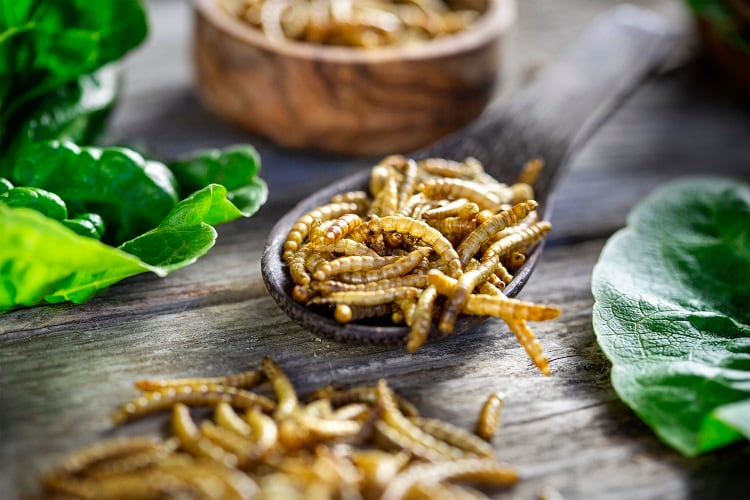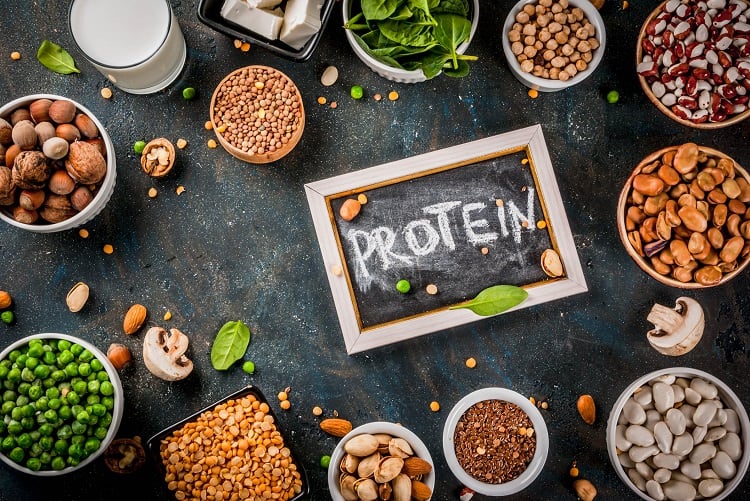Mycelium is often considered a good protein source in the world of meat-free meat analogues. Alongside mycoprotein, it is one of the most promising fungal protein sources.
However, consumer disgust remains a barrier. Many associate mycelium with mould, which is not exactly the most appetising of things to put in your mouth.
A new study, published in the journal Food Quality & Preference, explored what consumers think of mycelium, and whether it can ever truly be accepted by consumers.
Why is mycelium important?
According to the UN’s Food and Agriculture Organization (FAO), increasing global populations and living standards are likely to double the world’s demand for high-quality protein between 2000 and 2050. This gives us two options: dramatically expand animal protein production, exponentially increasing land use in the process, and likely leading to more greenhouse gas emissions; or find alternative sources of protein to take off some of the load.
Enter mycelium. In mushroom-forming fungi, the fruiting part of the organism – the mushroom itself – is only a small part of the entire thing. Much of the rest is mycelium. Thus, sourcing proteins from not only the mushroom itself, but the mycelium as well, provides further opportunities.
What is mycelium?
Mycelium, according to Royal Botanic Kew Gardens, is a series of fungal strands that reach into the earth beneath a fungus, playing a similar role to roots in plants. It is high in protein, making it a good meat-free protein alternative.
Furthermore, mushrooms are sustainable because they can be grown on used substrates (the base on which an organism grows). The sustainability benefits of growing mushrooms does not reach its full potential when mycelium is not consumed.
How do consumers decide whether to accept mycelium?
In anticipating whether consumers would be willing to accept mycelium, the researchers hypothesised that consumers would use a risk-benefit analysis, weighing up the pros and cons of consumption, along with the perceived social value of said consumption. The risk-benefit analysis would be influenced negatively by disgust, but positively by perceived naturalness, the paper suggested.
Disgust expresses risk, the risk of disease being an evolutionary precursor to a disgust response. As a negative attribute, it also influences perceived social value of mycelium. Some disgust among consumers may stem from substrates, such as manure, that is used for some mycelium, and further disgust from the association of mycelium itself with mould. However, the researchers predicted that removing visual disgust cues, for example through processing, would make consumers less likely to feel said disgust.
Furthermore, they predicted that perceived naturalness would offset the levels of disgust felt in consumers. The levels of processing will influence this perception, they hypothesised, with more processed mycelium perceived as less natural.
Testing different mycelium products
In order to test out consumer disgust, the researchers gave mycelium to the study’s participants at a variety of levels of processing: a natural mycelium mould cake (1 on the Nova Classification) mycelium protein powder (2 on Nova) and a burger using mycelium protein (4 on Nova). The researchers also used three different substrates - horse manure mixed with straw, hardwood logs, and a glucose solution with added vitamins and minerals. Thus, there were nine potential combinations.
The researchers predicted that, while a more processed mycelium product (the burger) would provoke less disgust in the consumer, it would also have lower perceived naturalness. With the mycelium mould cake, it would be the reverse.
Participants were tested for the levels of acceptability they felt towards the product, the levels of disgust they felt towards it, risk vs benefit, perceived naturalness, and the levels of social value that they perceived it would give them. Different participants were shown different combinations of mycelium product and substrate.
Will consumers accept mycelium?
The results showed that, as predicted, unprocessed mycelium cake did indeed evoke the most disgust, compared with the burger, although the protein powder evoked the least disgust. However, the burger was perceived as the least natural, followed by protein powder and then mycelium cake. Naturalness and disgust are almost synonymous.
As the researchers had predicted, disgust had a negative effect on participants’ benefit-risk trade-off, while naturalness had a positive effect. Disgust also had a negative effect on percieved social value, while naturalness had a positive effect on that as well.
In conclusion, the researchers suggest the fact that disgust is felt more strongly for products with a perceived naturalness indicates consumers recognise the importance of food processing for product safety.
Practically, the study suggests that naturalness and disgust must be balanced out for maximal appeal to the consumer.
Sourced From: Food Quality & Preference
'Consumer acceptance of mycelium as protein source'
Published on: 18 August 2024
DOI: https://doi.org/10.1016/j.foodqual.2024.105304
Authors: A. R.H. Fischer, O. Hilboesen





